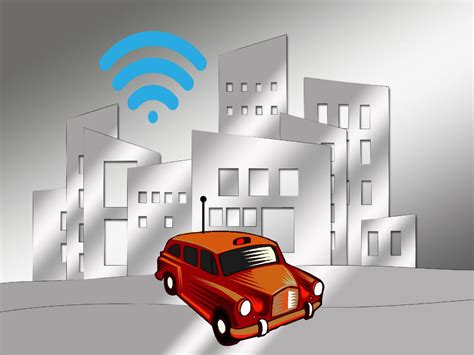You probably already know the risks tied to browsing the web on unsecured wireless networks like the public Wi-Fi in your local coffee shop or at the airport. Wardriving brings some of those same risks to your home.
Wardriving occurs when a hacker drives around and uses technology to identify insecure wireless networks — potentially in your home. The hacker may be able to access that network, gather sensitive data, and commit identity theft, or engage in other malicious activities. Are you at risk? It depends in part on the security of your home network. It’s smart to take steps to protect your network, devices, and data against wardrivers. Here’s what you need to know.
How Does Wardriving Work?
Peter Shipley, a computer security consultant, developed software that interacts with a portable global positioning system (GPS) and coined the term wardriving.
How does it work? Wardriving occurs when someone uses software and hardware to locate unsecured wireless networks and potentially gain access to them. Software applications are needed to figure out passwords and decrypt networks. Hardware includes a mobile device such as a wireless laptop, a GPS, and a wireless network.
Wardrivers travel around looking for Wi-Fi signals, plotting the Wi-Fi access points on a map — also called access point mapping — and gathering data on those networks. Wardrivers stay on the move, usually in vehicles, to find those Wi-Fi networks along their route. Variations of wardriving include warbiking, warcycling, warwalking, warjogging, warrailing, wartraining, and warkitting.
How Wardriving Can Affect You
Wardriving could enable hackers to gain access to any device connected to your home network. Hackers that access your network through wardriving may be able to engage in malicious activities like installing malware on your home computer and other connected devices. They may commit online frauds like identity theft, using the sensitive data they obtain from the computer and other devices connected to your network.
Is Wardriving Legal?
The legality of wardriving can be confusing. Laws don’t specifically prohibit or permit wardriving, but the act may have legal implications under certain jurisdictions and circumstances. For instance, in the United States, it isn’t illegal to gather data on wireless networks. Wardriving can have benign purposes like data collection and computer-generated mapping.
But exploiting wardriving could be problematic if a wardriver accesses a private network. Hacking into networks that aren’t yours — especially when accessing another person’s data and with malintent — could be considered a network attack and deemed criminal activity. Wardriving can be dangerous on a larger scale when the hack involves corporate networks.
5 Ways To Help Protect Your Network Against Wardriving
You can take steps to help make sure your home network is more secure and not vulnerable to outsiders engaging in activities like wardriving. Here are five tips for preventing outsiders from gaining access to your network.
- Turn off your wireless router when away from home or not using it. This will ensure it is not discoverable to outsiders like hackers.
- Change the default administrative login username and password on your router. Otherwise, hackers may be able to discover the default administrative passwords on the web.
- Use the highest level of encryption possible. This means using a router with up-to-date, secure encryption like Wi-Fi Protected Access 2 (WPA2) or WPA3, and permitting router access by passwords only.
- Conduct a review of your network settings. This review includes making sure your network settings are updated with the latest security patches. Patches fix security flaws that could leave your network vulnerable.
- Configure a firewall as an extra layer of protection. A firewall can monitor communications and help block unauthorized users from accessing your network.
Wardrivers may be less likely to access your personal information if you take these steps to protect your network and devices against intrusion. Best result? Wardrivers will continue on their way.

